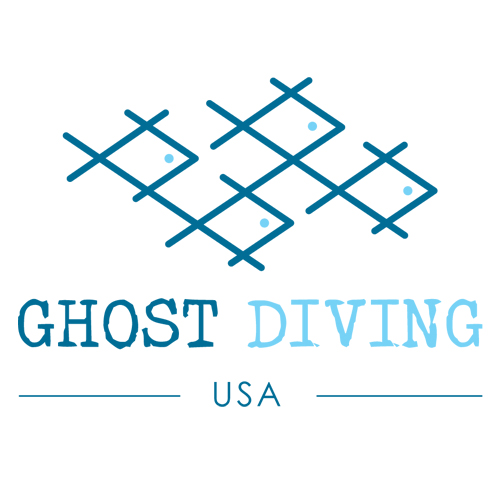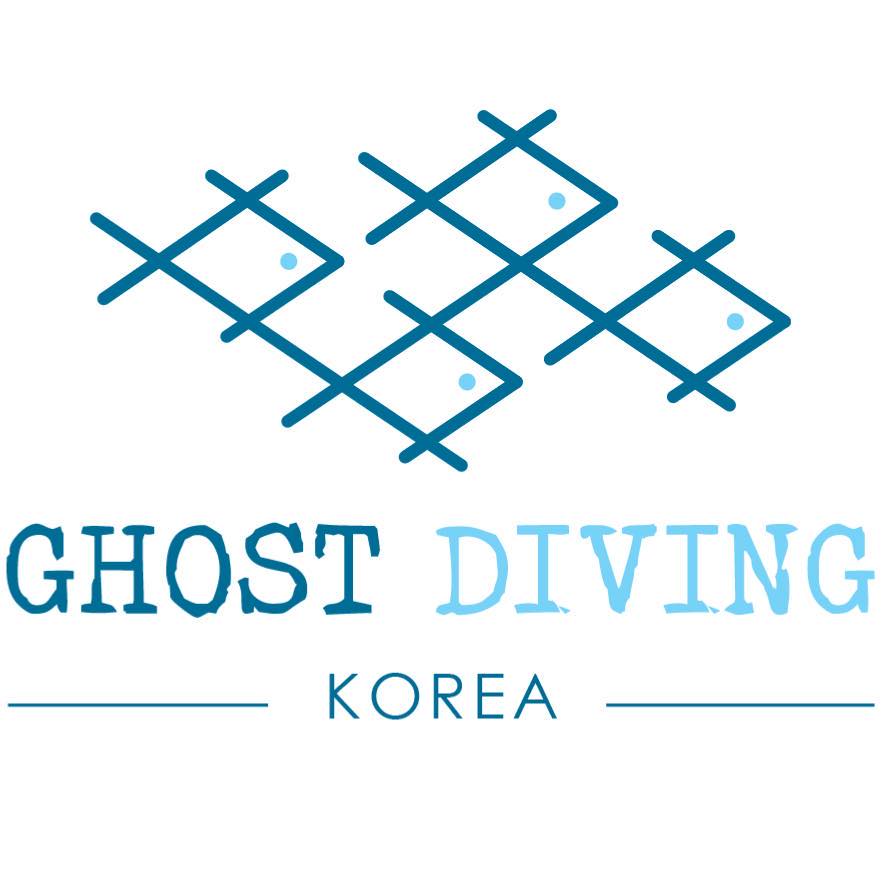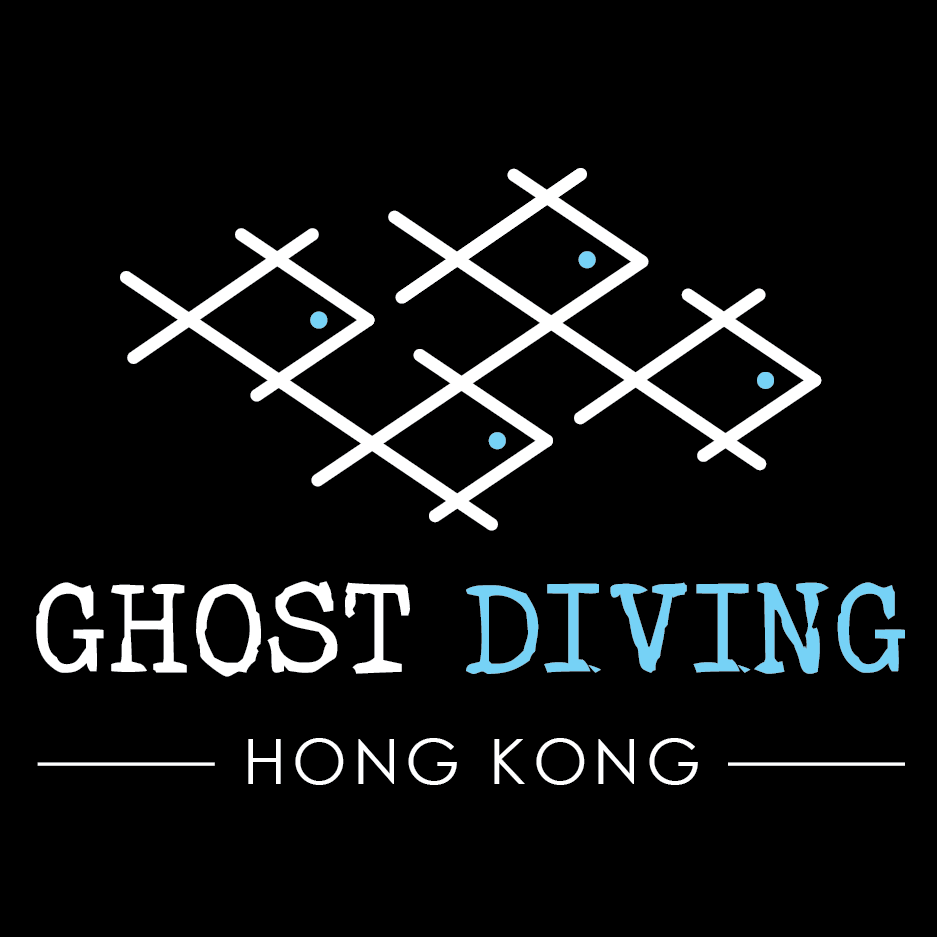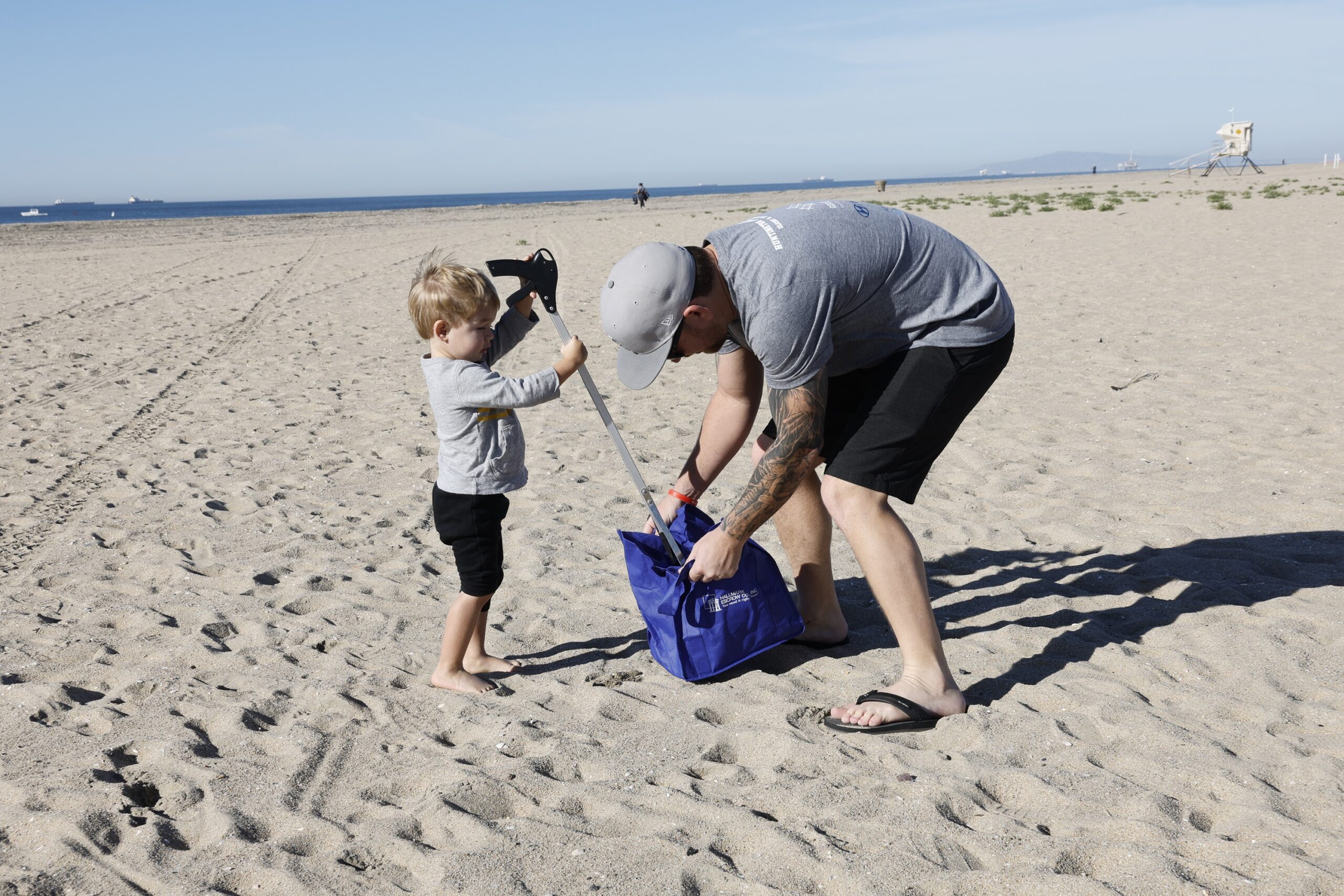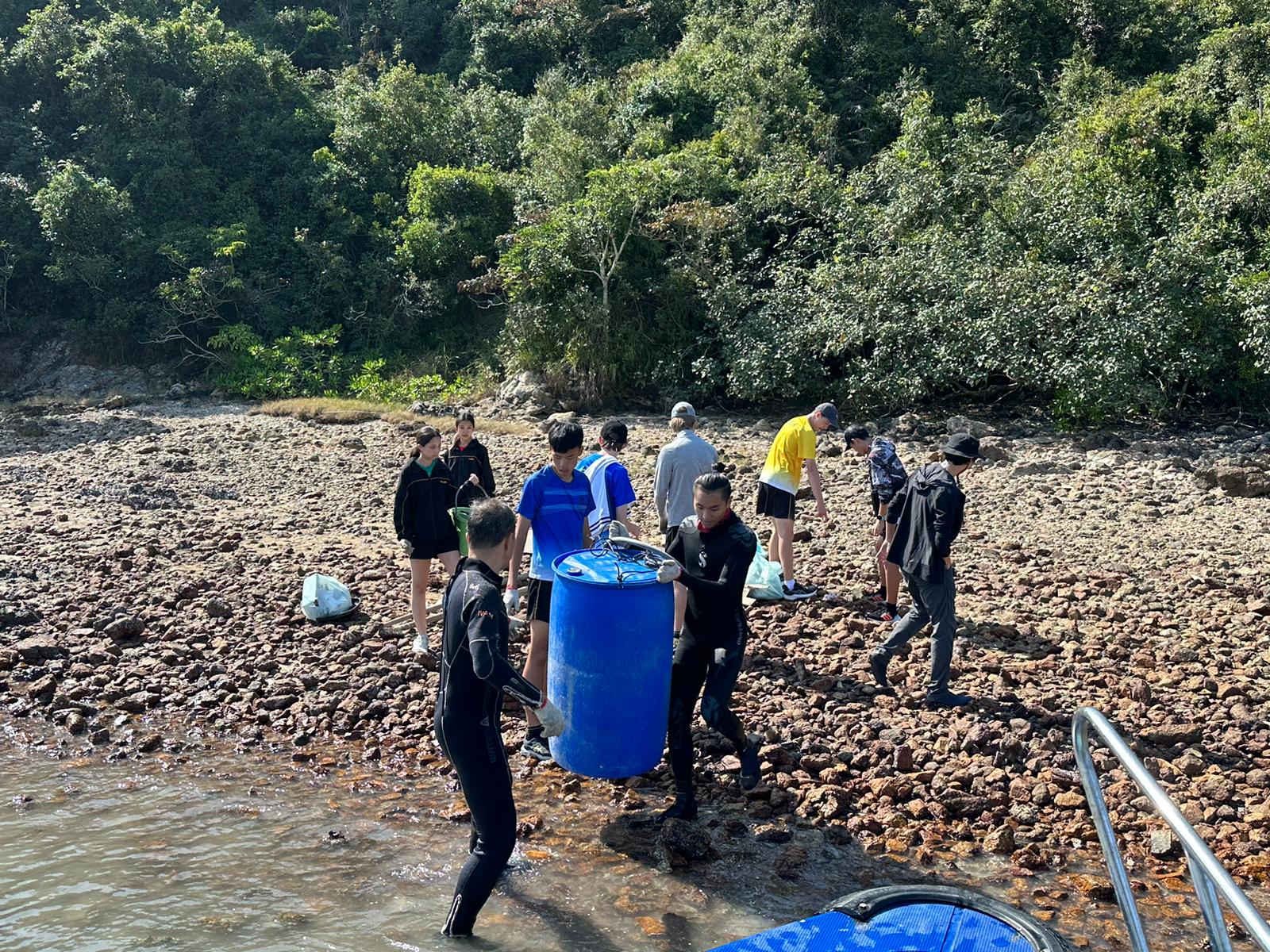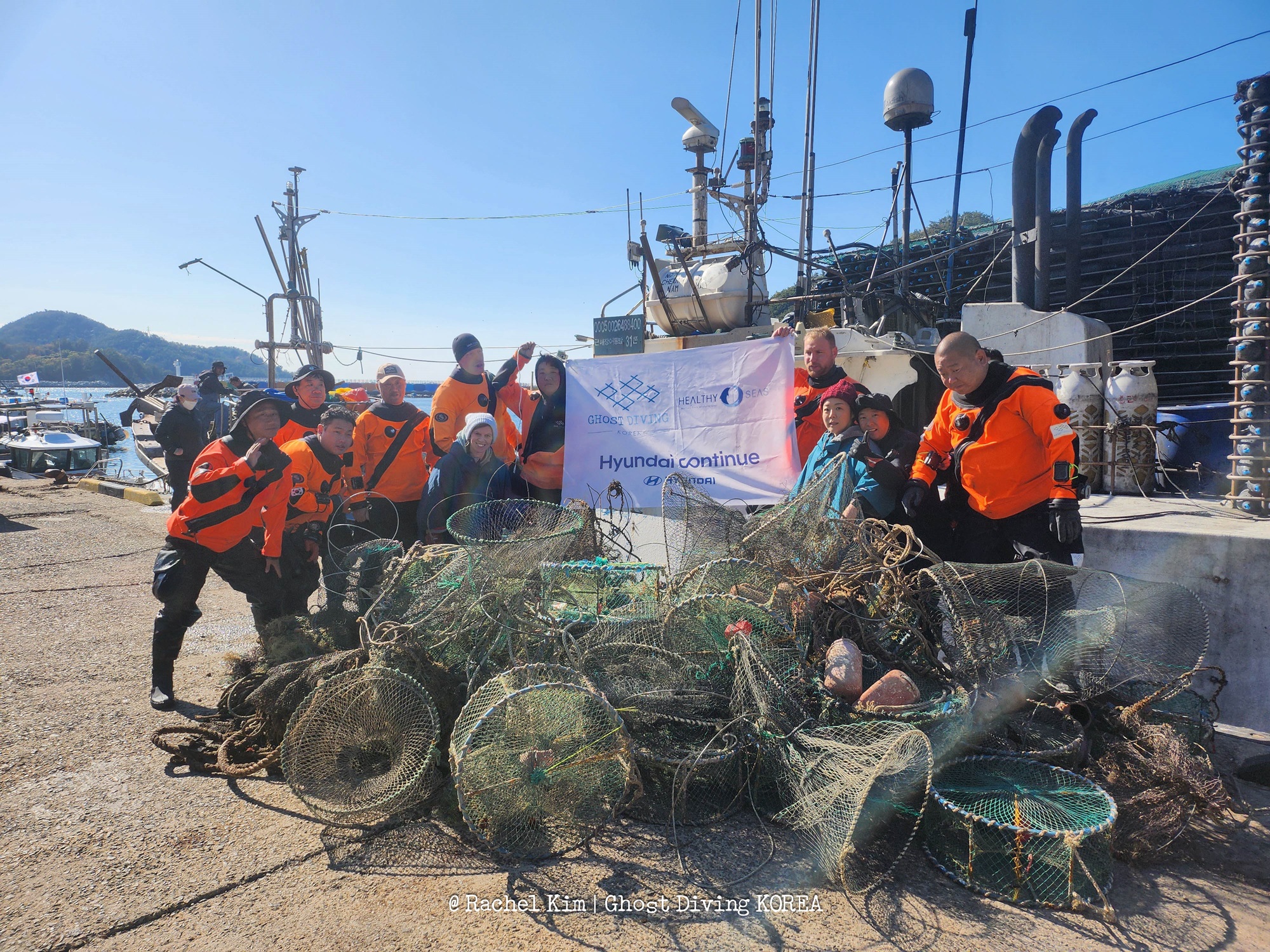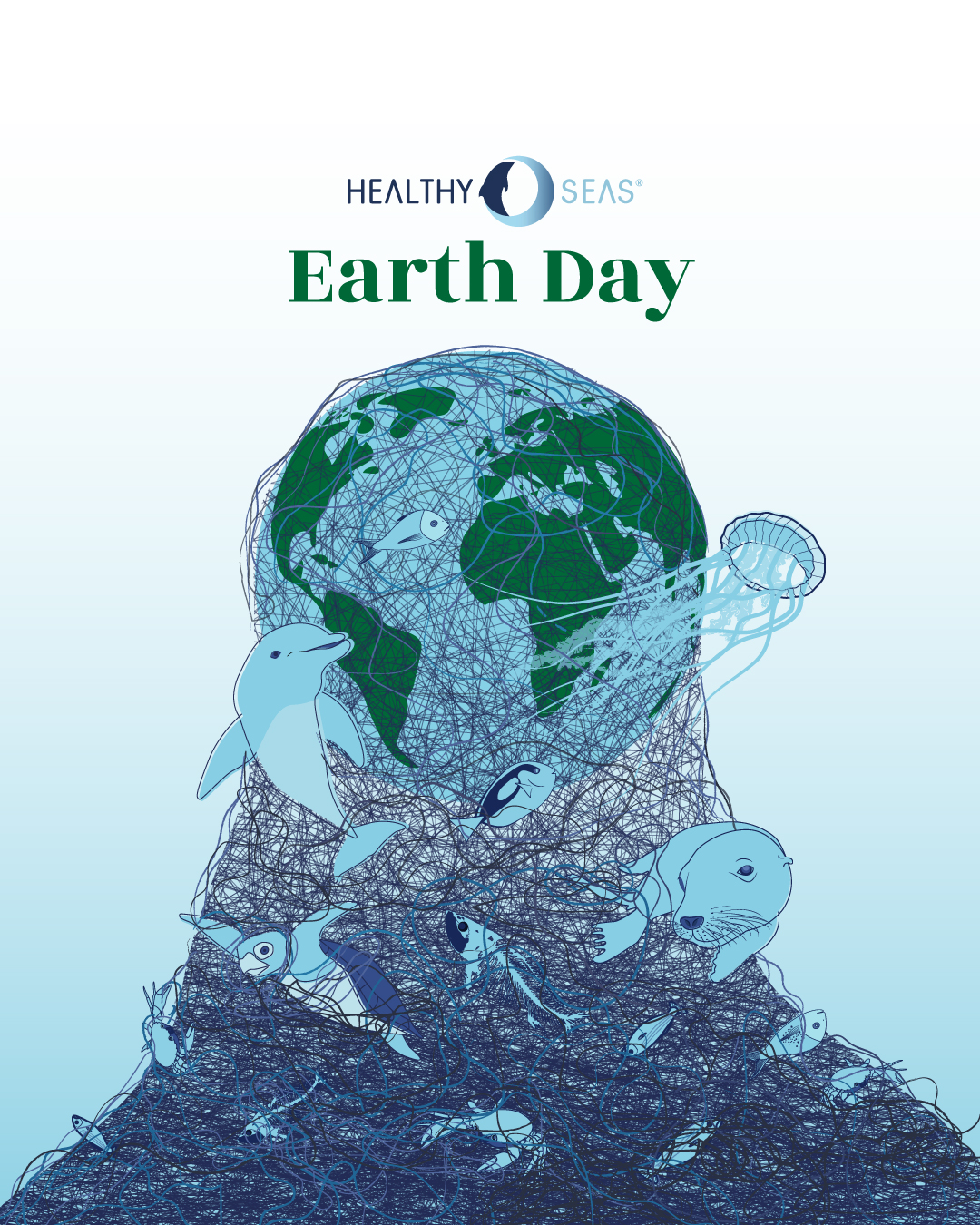Pacific Ocean
The Pacific Ocean holds immense ecological significance as one of the world’s largest and most diverse marine ecosystems. Its vast expanse encompasses a multitude of habitats, from coral reefs to open ocean, supporting an extraordinary array of marine life. However, the presence of ghost gear, including abandoned fishing nets, traps, and lines, poses a significant threat to this fragile ecosystem. These lost and discarded materials continue to ensnare and harm marine animals, damaging coral reefs and disrupting the natural balance of the Pacific Ocean’s intricate food web. Addressing the issue of ghost gear is essential for the long-term health and conservation of this vital marine environment, as well as for the protection of countless species that call it home.
Hong Kong
Capture fishing and aquaculture have a long history in Hong Kong, with the conservation of the environment and the well being of the fishing industry being at the forefront of the Hong Kong government’s agenda. Over the past few years, there has been a proactive approach to promote the conservation and preservation of Hong Kong’s marine habitat.
Since December 2012, there has been a ban on trawling within Hong Kong coastal waters to try to restore the damaged seabed. Combined with the Fisheries Protection Ordinance which is designed to regulate the size of local fishing vessels, these efforts aim at controlling fishing practices that resulted in the depletion and destruction of Hong Kong’s marine biodiversity.
Despite the efforts that have been made to conserve Hong Kong’s marine environment, there still remain challenges for the protection of the sea and coastline surrounding Hong Kong. For example, the numerous small speed boats that operate daily and deploy fine gill nets often for hundreds of meters along the sea floor. These are often lost or discarded becoming a major hazard to all marine life as well as the divers who enjoy Hong Kong’s waters. Volunteer divers also encounter the remains of nets from the trawlers that were lost or abandoned long ago and caught on submerged rocks and reefs (both natural and artificial) and aim to remove them from the ocean floor.
We are proud to have launched our activities in Hong Kong with a local volunteer dive group in 2023. These divers make a real difference for marine life!
Korea
Ghost Diving Korea was established in 2017 and is working to remove lost fishing gear and marine debris from the East Sea. This deep blue sea, located between South Korea, North Korea, Russia, and Japan, is relatively small but quite deep, showcasing characteristics similar to larger oceans.
The intricate circulation between deep and surface waters, the presence of two distinct climate zones, and various other characteristics collectively render the East Sea a microcosm encapsulating the qualities of all five major oceans. Oceanographers worldwide study the East Sea as it’s an almost perfect model to study climate change and other impacts.
Despite its ecological significance, it faces challenges like lost fishing gear and pollution. The rich biodiversity and abundance of fish makes it a popular fishing and marine leisure location with good conditions for scuba diving. As lost fishing gear is commonly found all over the East Sea, it puts divers and marine life at threat of entanglement, injury and death.
Since 2022 we’re collaborating with Ghost Diving Korea. Around thirty enthusiastic members, conduct underwater and beach clean ups in the region to protect marine life and combat pollution. Some of the most encountered types of marine litter are cigarettes butts, firework leftovers, plastics and other waste that enter the East Sea from the popular coastline.
New Zealand
In the summer of 2019, Healthy Seas expanded its activities to the Pacific Ocean when National Geographic produced a documentary for Prada and presented our first diving project together with our partner, Ghost Diving New Zealand.
Marine debris, ghost nets and rubbish are having a huge impact on the oceans globally. In New Zealand, vast arrays of marine debris lays scattered over the sea floor, impacting marine life and water quality. The ports and harbours in New Zealand are heavily utilized by vessels and people, resulting in rubbish and fishing nets entering the marine ecosystem. This rubbish impacts the marine flora and fauna significantly, reducing available habitat, introducing toxins and altering marine ecosystem.
Harbour cleanups, quiz nights, clean ups along the shore and in New Zealand’s remote sounds are regular activities for the volunteer team. Surface volunteers, scuba divers and free divers work together to contribute to safeguarding marine life, maintaining healthy ecosystems, and raising awareness about the perils of marine debris in the beautiful waters surrounding New Zealand.
USA
The Pacific Ocean, the largest and deepest of Earth’s oceans, has a profound connection with the United States. Stretching from the west coast of California to the Hawaiian Islands and beyond, the Pacific Ocean is an integral part of the nation’s geography, providing vital trade routes, abundant marine resources, and countless recreational opportunities. It plays a pivotal role in the climate system, influencing weather patterns along the coast and impacting ecosystems from Alaska to California. With its immense size and significance, the Pacific Ocean underscores the importance of marine conservation and sustainable practices.
In 2022, Healthy Seas forged a crucial partnership with Ghost Diving USA, alongside local partner Zen Dive Co, to initiate an impactful collaboration. This marked the beginning of a concerted effort to address the issue of marine debris, particularly ghost gear, along the U.S. coastline. Ghost Diving USA, with its team of dedicated divers and volunteers, has been actively engaged in removing abandoned fishing gear and marine litter, contributing to the protection of marine life and the preservation of underwater ecosystems.
Our partners in the Pacific Ocean
Related News
Diving Into Sustainability: Hyundai Motor America, Healthy Seas, and Ghost Diving USA Join Forces for Ocean Conservation
Hey there, ocean advocates! We're stoked to bring you the latest scoop on an exciting [...]
Healthy Seas Making Waves in Hong Kong: A Tale of Cleanup, Education, and Commitment
Welcome to the latest update from Healthy Seas, your dedicated partner in the global fight [...]
Diving into Action: Healthy Seas’ Spectacular Cleanup Mission in South Korea
Welcome to the thrilling world of underwater conservation! In our ongoing commitment to a [...]
How we Celebrated Earth Day 2023
To celebrate Earth Day this year, Healthy Seas organised three education and awareness raising events [...]
Together we can make
a positive impact for the planet!



